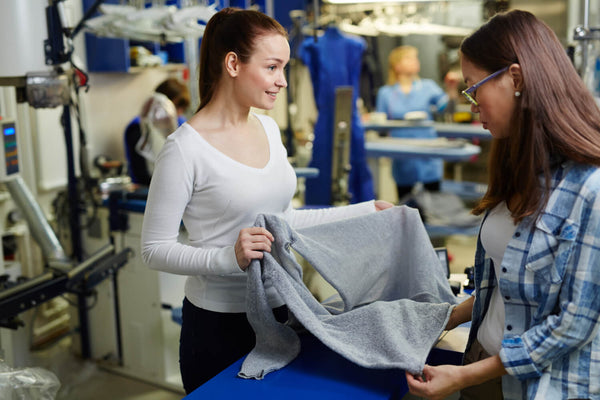Introduction About Fabric Material
Fabric material samples play a pivotal role in textile projects. They provide a tangible feel of the texture, weight, and drape, which is crucial for making informed decisions. Moreover, they accurately represent colour and pattern, which is essential for aesthetic considerations.
However, obtaining suitable samples necessitates asking the right questions. Inquiring about the fabric's origin, manufacturing process, care instructions, and sustainability credentials can ensure the material aligns with the project's requirements and values. Thus, fabric samples and the right inquiries are instrumental in steering a textile project towards success.
Understanding Your Project Needs
First, identify your textile project's technical and aesthetic requirements through performance needs, suitable widths, hand feels, sheens and design motifs. Next, explore fabric suppliers specialising in categories suiting the project, like apparel, upholstery or industrial textiles. Engage customer service teams to locate optimal materials for your purposes based on the priority specifications determined. They can source perfect-fit fabrics.
Key Questions to Ask Fabric Suppliers
How does the fabric feel and look?
When seeking fabric, inquire about the hand feel, weight, sheen and texture to determine if it aligns with your needs. Requesting a sample is the best way to evaluate, look, and feel firsthand before purchase.
Read more: How Do You Choose the Fabric According to the Body Type?
What is the fabric made of, and how does it affect its performance?
Understanding fibre content indicates inherent properties regarding durability, longevity, environmental friendliness, comfort, and suitability to your project's demands.

Does the fabric meet industry standards for your project?
Ask if available textiles satisfy the physical testing criteria and certifications required by your specific usage and jurisdiction, be it apparel, upholstery or commercial facility applications.
Are there specific care instructions for the fabric?
Determine optimal cleaning practices, Allowable bleach and heat levels, drying methods and any special handling needed to maintain quality and appearance through laundering or wear and tear.
Can you provide colour swatches or samples?
Examine colours, textures and drapes firsthand by requesting physical samples representing all dye lots being considered to make accurate selections and match additional fabrics.
How does the fabric react to different lighting conditions?
Illumination affects appearance, so inspect samples under various lighting-simulating end-use environments to observe colour, sheen and texture variances under different sources.
What is the lead time for production and delivery?
Understand the timeframes required between order placement and receipt to schedule projects, factoring in potential delays properly. Rush fees may apply for expedited processing.
Are there any additional costs, such as shipping or taxes?
Clarify complete pricing upfront, encompassing quoted yardage rates plus applicable surcharges like shipping, customs duties and sales tax, which can profoundly impact budgeting.

Does the supplier have any certifications related to sustainability?
Seek details on reputable accredited certifications, signalling a commitment to environmentally and socially responsible practices across supply chains.
Read more: How Customer Reviews Impact Online Fabric Retailers?
Is the fabric produced in an environmentally friendly manner?
Ask about pollution output, chemical usage, fair labour conditions and sustainable farming/manufacturing initiatives demonstrating honest supervision over the fabric's ecological life cycle.
Conclusion
When sourcing fabric for your textile project, asking the right questions is imperative to receive material samples that ideally suit your needs. Key details to request upfront include precise fibre contents, widths, weights, drapes, stretch capabilities, performance properties, certifications and compliance with specifications.
Understanding the exact end usage context helps suppliers recommend appropriate constructions, weaves and print suitability. Ask for the fabric's care instructions to maintain quality through laundering and usage. Require lead times to align timelines. Verify any additional fees like duties or shipping.
Request physical samples representing all dye lots under consideration to judge look, feel accuracy, and variances under different lighting conditions. Swatches should be sizable to get a realistic impression and test the planned construction techniques.
Being transparent about project goals, cost constraints, regulatory requirements, quantities needed, and success metrics makes suggestions more exact. Develop relationships with specialists willing to find or even develop customised fabrics serving your priorities through transparent collaboration. With clear communication of project demands, fabric experts can source and curate samples leading to ideal materials ensuring your textile visions manifest brilliantly.
 Call Us
Call Us
